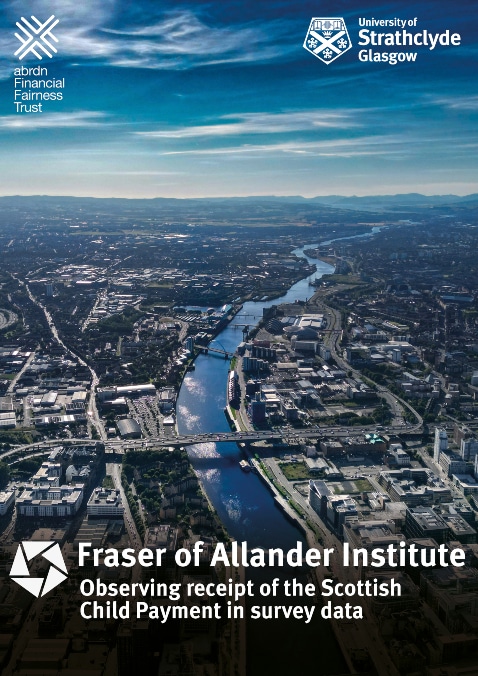The Scottish Child Payment (SCP) is a key benefit for reducing child poverty in Scotland. When SCP was first introduced in 2021, it was underreported compared to administrative data in the survey data used to measure poverty in Scotland (the Family Resources Survey, or FRS). An imputation strategy to replace the suspected missing information was implemented in 2022/23 to better capture households receiving SCP.
Several issues were found with the initial imputation; for instance, several households are recorded as receiving SCP for children who were too old to be eligible. Scottish Government analysts have now worked with the Department for Work and Pensions (DWP) to develop a new imputation strategy that accounts for these issues in the latest data (2023/24). The new method takes into account the correct age ranges and amount of SCP per week, per child, as well as take-up rates for the benefit.
Accurate statistics are particularly important for this period as the 2023/24 data tells us that Scotland has not met its interim child poverty targets.
In this report, we retroactively apply the new imputation method to the 2022/23 data to ensure that SCP take-up rates, and therefore poverty statistics, will be comparable between 2022/23 and 2023/24.
We conclude that the new imputation method creates small changes in some child poverty measurements for the year 2022/23. However, the main measurement used to discuss child poverty (60% of median equivalised household income after housing costs) is not affected by the change in imputation.
The new imputation method is also reasonably consistent in capturing the expected number of children and families receiving SCP and the total cost to the government over the financial year.
We conclude that the updated imputation methodology is a marked improvement over the previous method, but that implementing this new method earlier would not have significantly changed our understanding of progress towards the interim child poverty targets.
We welcome the new methodology and a commitment from DWP to provides more explanation of the imputation methodology alongside the 2023/24 statistics. We believe these improvements will ensure that people can use the new statistics with confidence. However, there must be a robust and transparent process in place to ensure that any future changes in devolved social security systems are accurately reflected in official poverty statistics.
abrdn Financial Fairness Trust has supported this project as part of its mission to contribute towards strategic change which improves financial well-being in the UK. The Trust funds research, policy work and campaigning activities to tackle financial problems and improve living standards for people on low-to-middle incomes in the UK. It is an independent charitable foundation registered in Scotland (SC040877).
Authors
Hannah is a Fellow at the Fraser of Allander Institute. She specialises in applied social policy analysis with a focus on social security, poverty and inequality, labour supply, and immigration.
Chirsty is a Knowledge Exchange Associate at the Fraser of Allander Institute where she primarily works on projects related to employment and inequality.
Emma Congreve is Principal Knowledge Exchange Fellow and Deputy Director at the Fraser of Allander Institute. Emma's work at the Institute is focussed on policy analysis, covering a wide range of areas of social and economic policy. Emma is an experienced economist and has previously held roles as a senior economist at the Joseph Rowntree Foundation and as an economic adviser within the Scottish Government.



